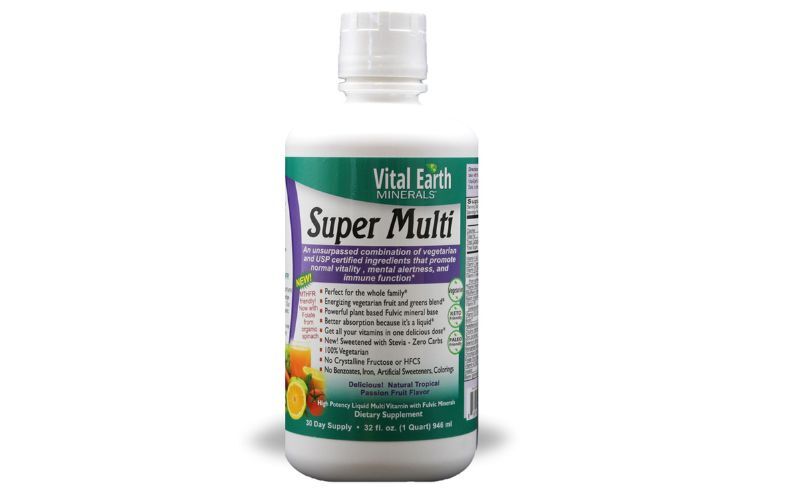How Does Vitamin D Affect Gut Flora?
22nd Jul 2025
Vitamin D contributes significantly to the maintenance of bone health, immune regulation, and inflammation control. But did you know it also influences your gut health? Over the past few years, researchers have unraveled how vitamin D influences gut flora, the intricate universe of microbes that inhabit the digestive system. Let's explore how this vitamin influences gut health and why you should care about it for your overall health.
The Link Between Vitamin D and the Gut Flora
Vitamin D shapes and maintains a healthy gut environment. It acts on gut microbes to keep their balance, diversity, and functionality.
Vitamin D not only aids in calcium absorption, but it also molds the environment in your gut. Gut flora or gut microbiota is a reference to the trillions of bacteria, viruses, fungi, and other microbes that live in your intestines. These microbes have critical roles to play in digestion, immunity, and even mood.
New research has shown that vitamin D helps maintain a healthy balance of beneficial and pathogenic bacteria in the gut. When your vitamin D supplies are low, this ratio can shift, enabling harmful bacteria to proliferate with ease. This ratio imbalance can create digestive disturbances, inflammation, and even diseases.
How Vitamin D Affects Gut Flora
Knowing how vitamin D operates in the digestive tract will allow us to appreciate its full advantage. From enhancing beneficial bacteria to decreasing inflammation, its impact is broad.

1. Modulation of Bacterial Diversity
Vitamin D serves to enhance microbial diversity in the gut, an indicator of a healthy microbiome. The greater the diversity of gut flora, the better the digestion and immunity, and the less prone they are to disease. Vitamin D deficiency has been found to decrease this diversity, rendering the gut susceptible to pathogenic bacteria.
2. Regulation of the Immune System
Vitamin D reinforces the gut barrier and improves immune function. It lowers inflammation of the gut by controlling the excessive production of cytokines and immune cells. A more efficient immune system can suppress pathogenic (disease-causing) bacteria while encouraging beneficial microbes to grow.
3. Prevention of Dysbiosis
Dysbiosis exists when the balance between gut bacteria is altered. Studies show that having sufficient vitamin D can prevent or reverse dysbiosis by promoting healthy bacteria and restricting the proliferation of pathogenic bacteria. It serves to ensure overall harmony in the gut.
4. Effect on Specific Strains of Bacteria
Research has noted that supplementing with vitamin D will boost levels of Lactobacillus and Bifidobacterium, both of which are deemed beneficial bacteria. Both of these strains aid in digestion, improve nutrient absorption, and increase immune function.
Health Benefits of Balanced Gut Flora Sustained by Vitamin D
Having a well-balanced gut ecosystem sustained by vitamin D results in various health benefits. It aids in digestion, nutrient assimilation, and even mental health.
When your gut bacteria are balanced and healthy because you have enough vitamin D, your body benefits in many ways. These include improved digestion, inflammation reduction, increased nutrient uptake, and greater immune protection. A healthy gut also helps with enhanced mood and mental clarity since it is sometimes called the "second brain."
In addition, a healthy gut microbiome can also guard against diseases such as irritable bowel syndrome (IBS), obesity, type 2 diabetes, and even depression.
Research Supporting the Connection Between Vitamin D and Gut Bacteria
Recent research indicates that vitamin D influences the balance of microbes and the immune system within the gut. There is growing clinical evidence that supports its benefits for gut health.
In 2023, the American Journal of Pathology published research that demonstrated vitamin D influences the abundance of specific bacterial groups, promoting beneficial ones while reducing the levels of pathogenic (disease-causing) bacteria. Another review in the International Journal of Molecular Sciences highlighted the connection between a vitamin D deficiency and a modified gut microbiota, as well as increased inflammation.
Furthermore, research published in Scientific Reports and Frontiers in Microbiology has confirmed that vitamin D supplements can induce beneficial changes in the gut microbiota, particularly among individuals with pre-existing vitamin D deficiencies.
Vitamin D Deficiency and Gut Health Risks
When vitamin D is lacking, gut flora may become imbalanced, which causes digestive and immune-related problems. Such effects can contribute to overall health problems.
Low vitamin D levels are widespread, particularly in regions with little sunlight or in people who live indoors for much of the time. Vitamin D deficiency can throw off the gut flora, causing:
- Increased gut permeability ("leaky gut")
- Increased susceptibility to infections
- Gut problems such as bloating and constipation
- Chronic inflammation
These conditions can then lead to autoimmune diseases, metabolic diseases, and mental health issues.
How to Support Your Gut Flora with Vitamin D
Simple steps can help maintain healthy vitamin D levels and a balanced gut. Lifestyle and dietary choices both play a role.
1. Eat Vitamin D-rich foods.
Eat foods such as seafood (salmon, mackerel), fortified dairy, egg yolks, and mushrooms. These ensure you have adequate healthy vitamin D levels and make sure to avoid the worst foods for gut health.
2. Get Enough Sunlight
Your body naturally gets vitamin D when exposed to sunlight. Aim for at least 15–30 minutes of sunlight a few times per week. However, this may vary depending on skin type, location, and weather conditions.
3. Consider Supplements
If you live in a region with poor sun exposure or have issues absorbing nutrients, supplementing with Vital Earth Minerals Multi Liquid Vitamin can be beneficial. Be sure to talk to a healthcare professional before starting any new supplement practice.
4. Pair with Probiotics
Adding vitamin D to probiotic foods or supplements can further enhance gut health. Good choices include yogurt, kefir, sauerkraut, and kimchi.
Conclusion
Vitamin D is more than a bone nutrient. It is essential for the formation and health of a healthy gut microbiome. Through the regulation of bacterial diversity, immune system resilience, and avoidance of pathogenic microbial imbalance, vitamin D contributes to a healthier digestive and entire body system. Maintaining adequate vitamin D levels through sunlight, diet, or supplements is a wise and effective way to support long-term gut health.
Frequently Asked Questions
Does vitamin D supplementation benefit gut health?
Yes, studies indicate that supplementing with vitamin D can help balance gut bacteria, especially in individuals who are deficient in vitamin D.
How soon will vitamin D influence gut flora?
They may start within a few weeks of supplementation, although long-term consistency yields the best results.
Is excess vitamin D harmful to your gut?
Yes, excess vitamin D can have adverse effects such as nausea, vomiting, and kidney issues. Always adhere to recommended amounts.
Do probiotics have better results with vitamin D?
Yes, taking vitamin D together with probiotics can maximize the advantages of both, leading to better gut health results.






